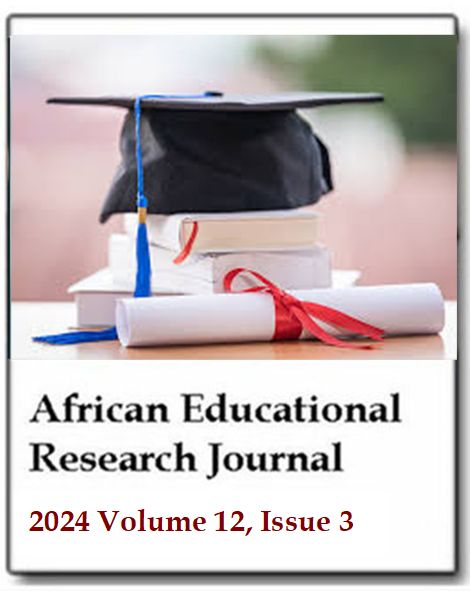Bridging education gaps: Implementation of Mavis talking pens and books in non-formal learning centers in Northeast Nigeria
Marlana Salmon-Letelier, Bernard Thuo, Allison Park, Gabriel Sambo and Richard Stephen TekdekAfrican Educational Research Journal
Published: September 13 2024
Volume 12, Issue 3
Pages 224-237
DOI: https://doi.org/10.30918/AERJ.123.24.046
Abstract
The educational crisis in Northeast Nigeria, deepened by conflict, economic challenges, and the COVID-19 pandemic, has significantly hindered access to quality education for millions of children. In response, EdTech solutions such as the Mavis Talking Books and Pens have shown potential in supporting education in conflict-affected and under-resourced areas. This study examines the implementation of the Mavis Talking Books and Pens within non-formal classrooms in Borno state, focusing on out-of-school children aged 9 to 16 who are part of an ongoing non-formal learning initiative. The research aimed to assess the effectiveness of the Mavis tools and identify the conditions necessary for their successful implementation and scalability using a mixed-methods approach involving surveys, focus groups, interviews, and observations with 70 learning facilitators and 350 students across 70 non-formal learning centers. The study found that the Mavis Talking Books and Pens were largely effectively implemented, which appears to lead to student progress, although some inconsistencies in student engagement and classroom management were noted. Challenges included the need for more frequent use, better student-to-pen ratios, and improvements in the learning environment. Facilitators also highlighted the importance of stronger community engagement and addressing external factors affecting student attendance. To overcome these challenges, the study suggests focusing on strengthening support systems, optimizing resource allocation, and enhancing community engagement. These findings offer important insights into how EdTech tools like Mavis Talking Books and Pens can be effectively integrated into non-formal education settings in crisis-affected regions, helping to improve educational outcomes for marginalized children in similar contexts.
Keywords: EdTech, Nigeria, education in emergencies, literacy, numeracy.
Full Text PDFThis article is published under the terms of the Creative Commons Attribution License 4.0

